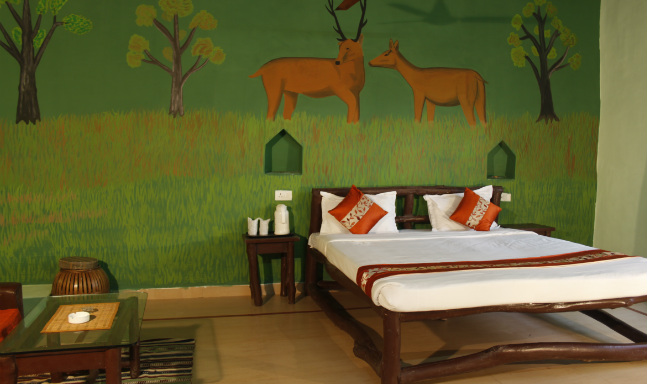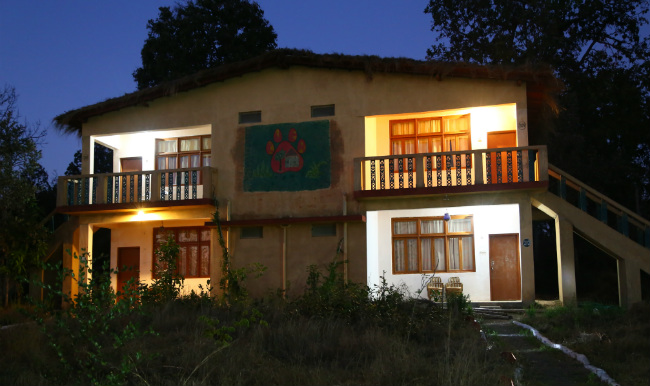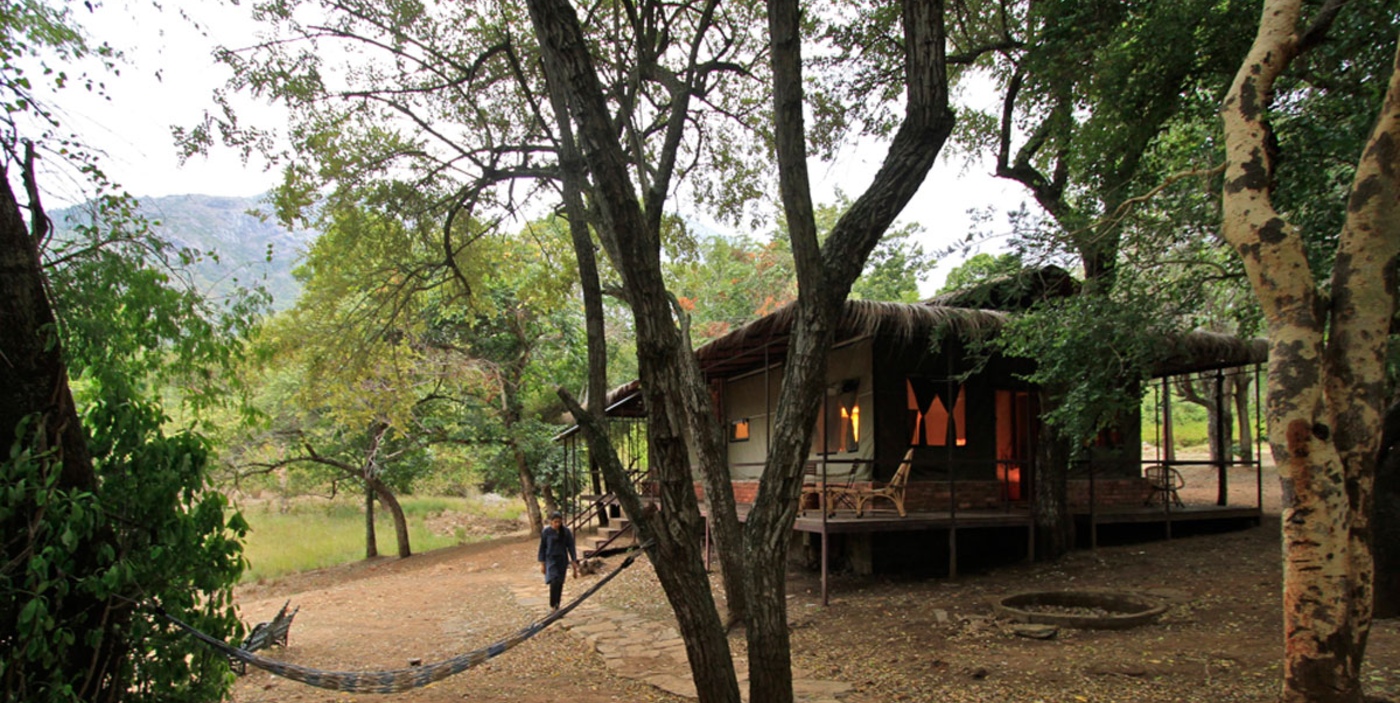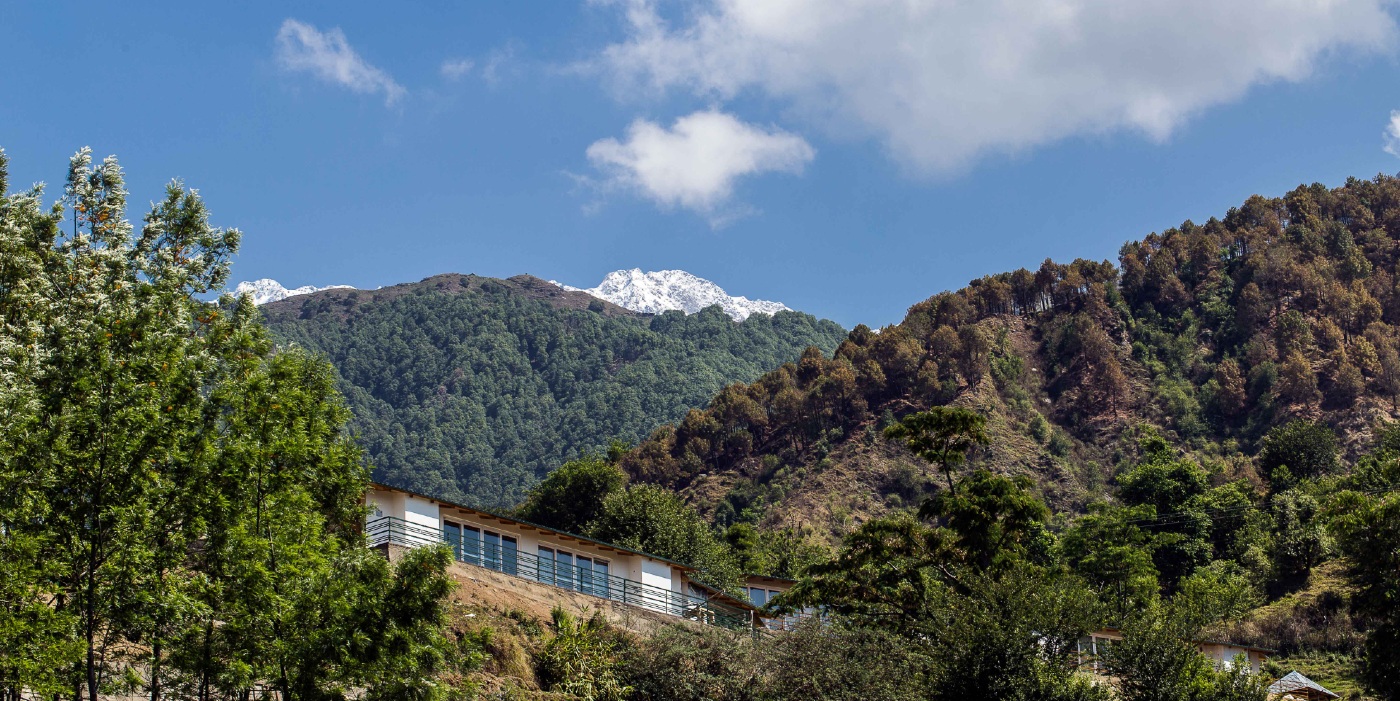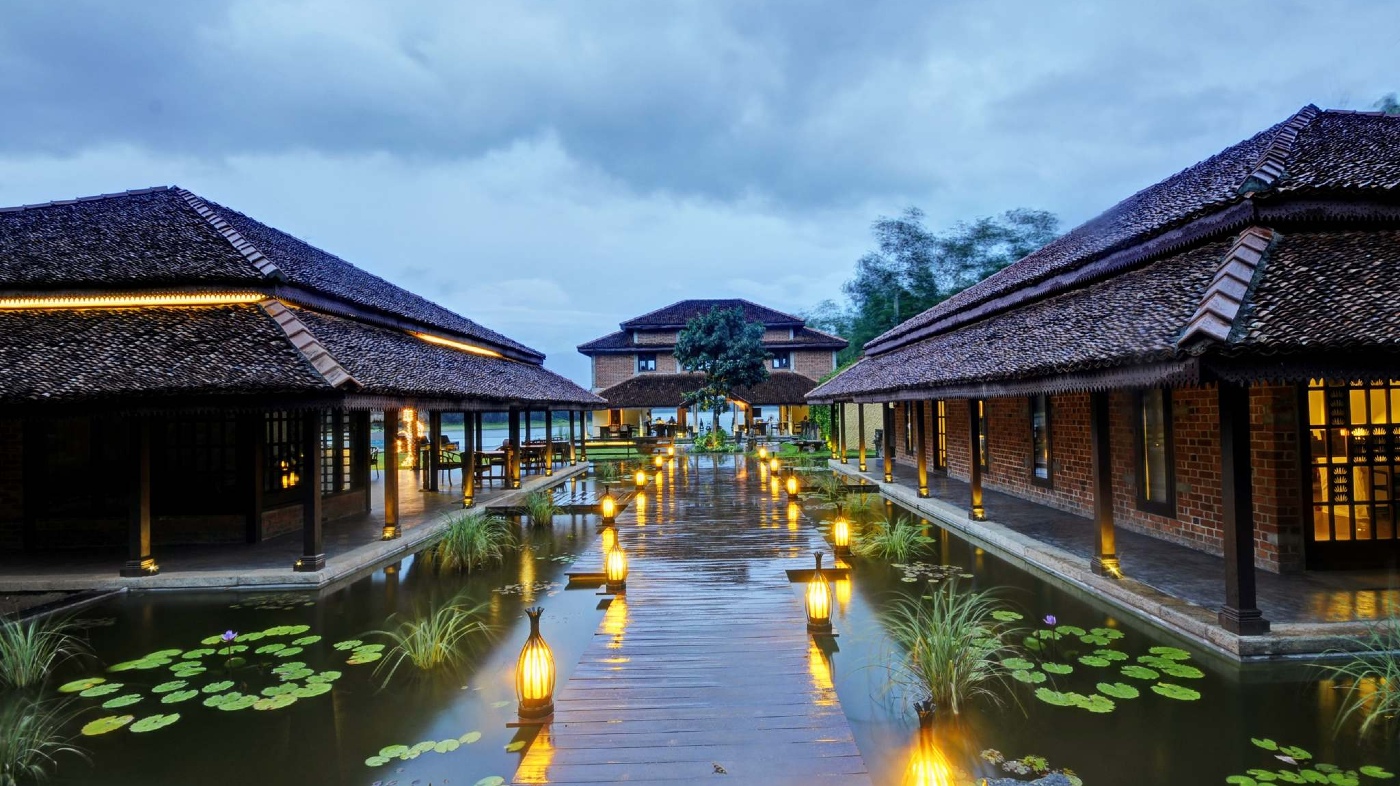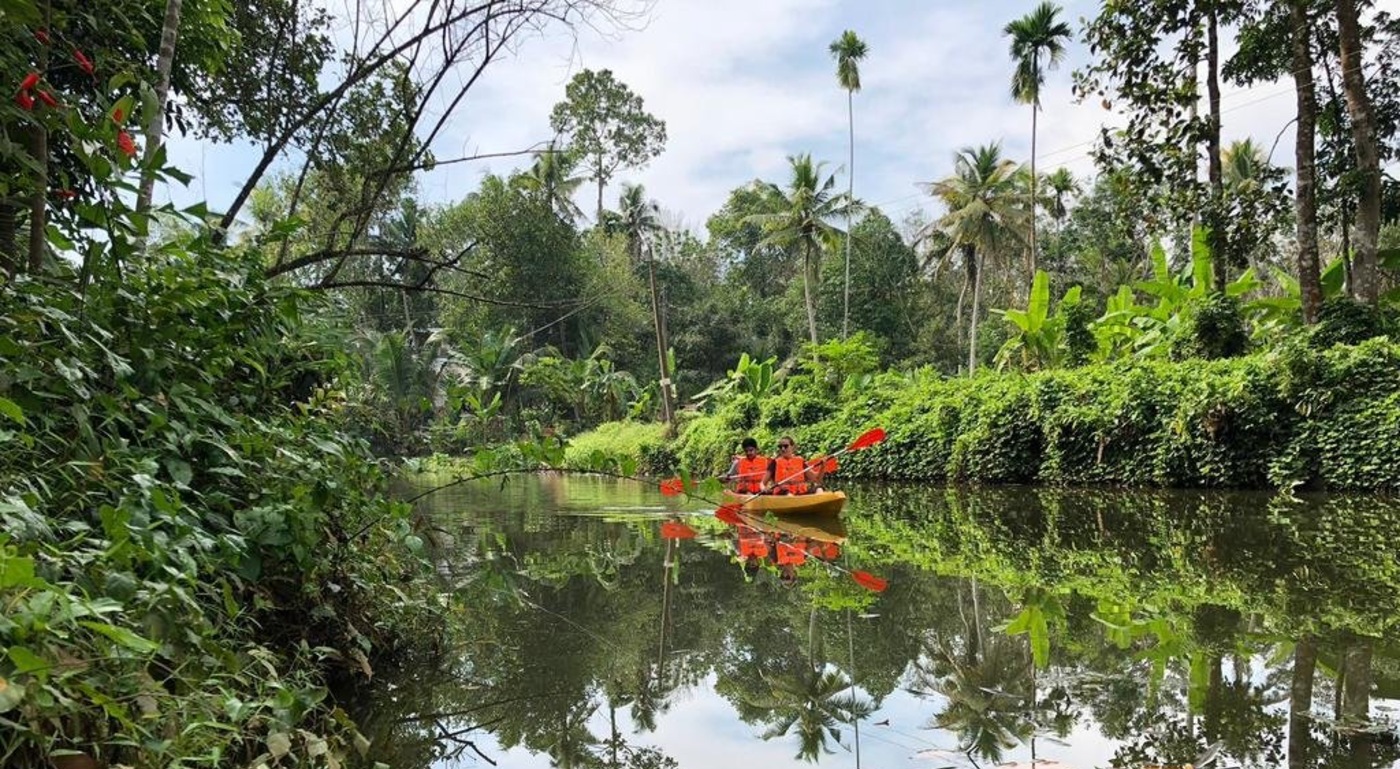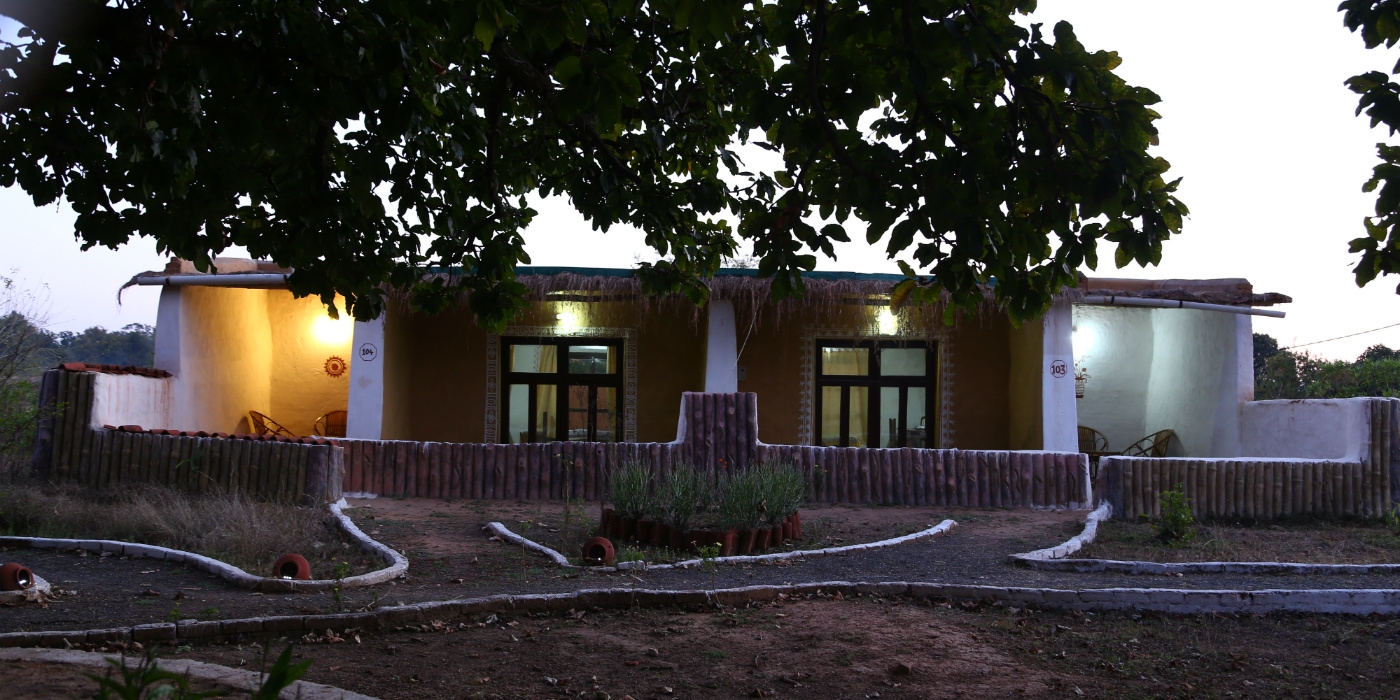
A rustic safari lodge near Kanha National Park, Madhya Pradesh
The Kanha Village Eco Resort is set in the quiet village of Boda Chhapri, close to the Khatia Kisli gate of the Kanha National Park. This laidback and down-to-earth safari lodge offers comfortable wildlife and rural activities focused stay that is also sustainably run.
The resort offers well-appointed rooms in cottages built mostly of mud, clay and straw. Many of the rooms have large wall murals or local wildlife and vegetation. Some of the premium rooms have open-to-sky or indoor splash pools. The resort also has a swimming pool. However, let not the pools put you off as the resort practices water recycling methods. Bath water is filtered and used for watering plants and other utility purposes, while the filtration plant in the swimming pool ensures water does not have to be changed for weeks together.
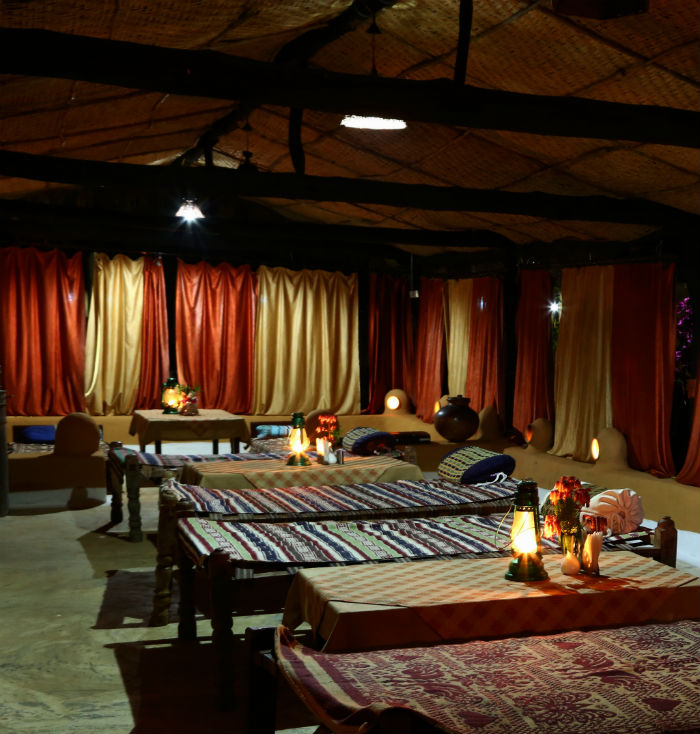
As expected of a resort near Kanha national park, safaris are easily organised. However, the resort also organises non-safari activities like yoga and meditation, bird watching trips, jungle walks, cycling trips, tribal village visits and cooking demonstrations by local women to ensure travellers get to reduce the pressure on the national park and also to expose travellers to local culture.
Price: Rs 6,000 (includes breakfast, lunch and dinner; does not include GST) for double occupancy.
Read more: http://www.kanhavillage.com/
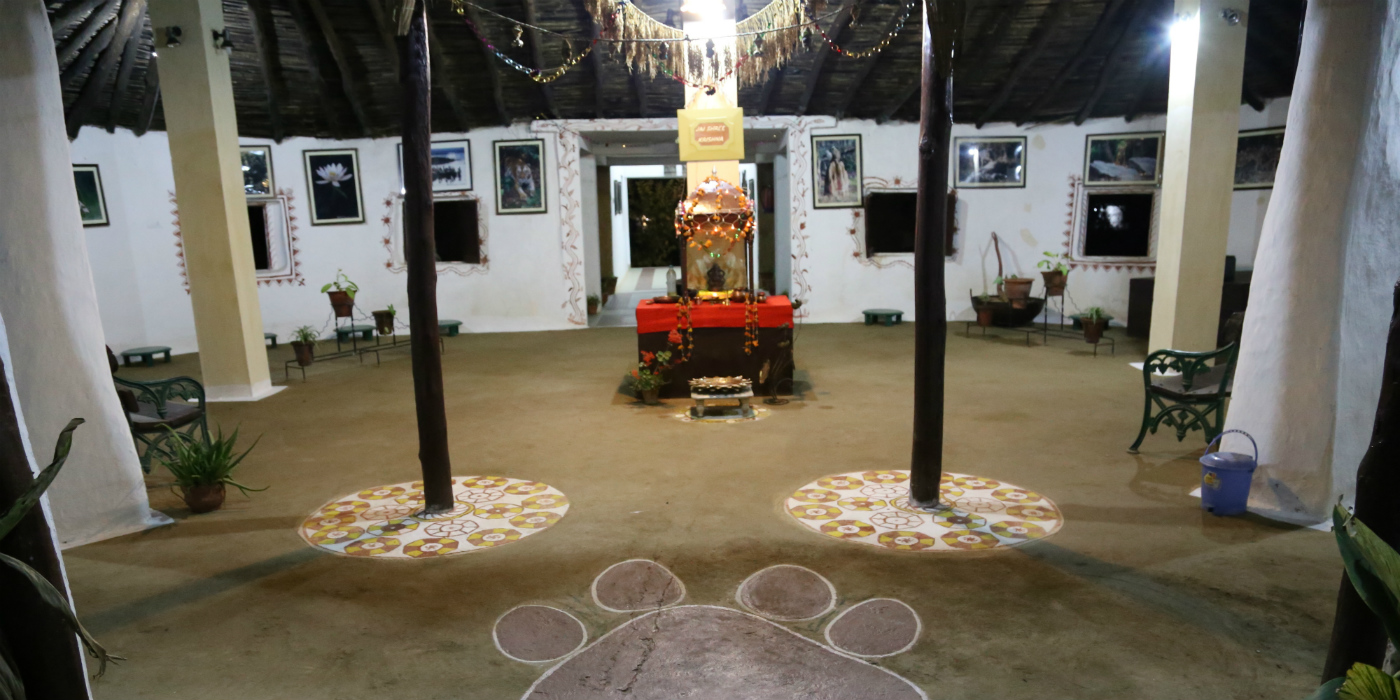
Slow Travel
About 75% of the construction at Kanha Village Eco Resort has been done with mud and clay. The paint is mostly local clay and lime. The resort follows RT practices like using filtered bathwater for watering plants and recycling of waste and vermin composting. The filtration plant in the swimming pool ensures the same water is used for weeks at a time. The resort has an RO water filtration unit and guests are encouraged to refrain from using bottled water. It uses solar-based LED lighting system for pathway lighting. It has an organic garden and also procures vegetables and milk products from local farmers. Most employees are from local tribal communities; the resort has trained two local youth as cooks and they run the resort’s multi-cuisine resort.
